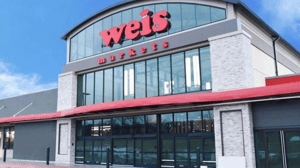Sponsored By
The Peck’s Markets logo
Finance
Peck’s Markets, as part of sale to PSK, joins Allegiance Retail ServicesPeck’s Markets, as part of sale to PSK, joins Allegiance Retail Services
The four-store grocery chain will receive business support from the member-owned co-op
Stay up-to-date on the latest food retail news and trends
Subscribe to free eNewsletters from Supermarket News










































